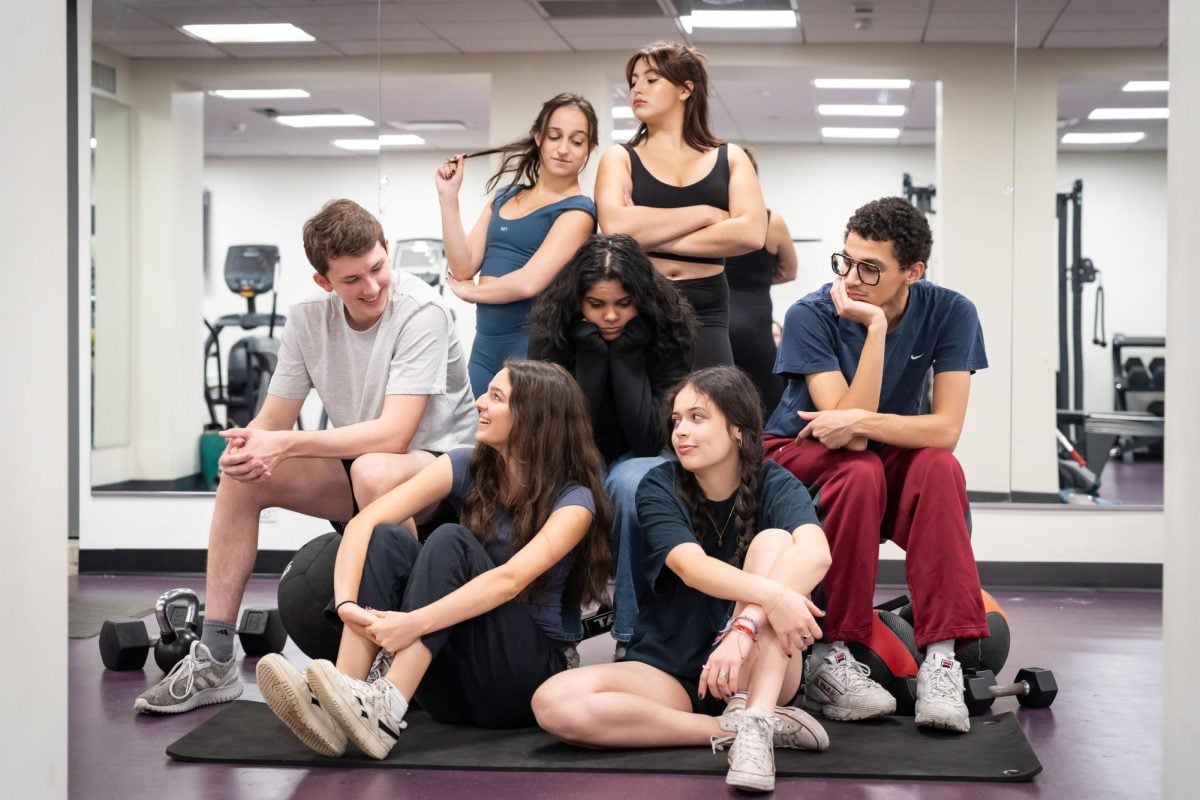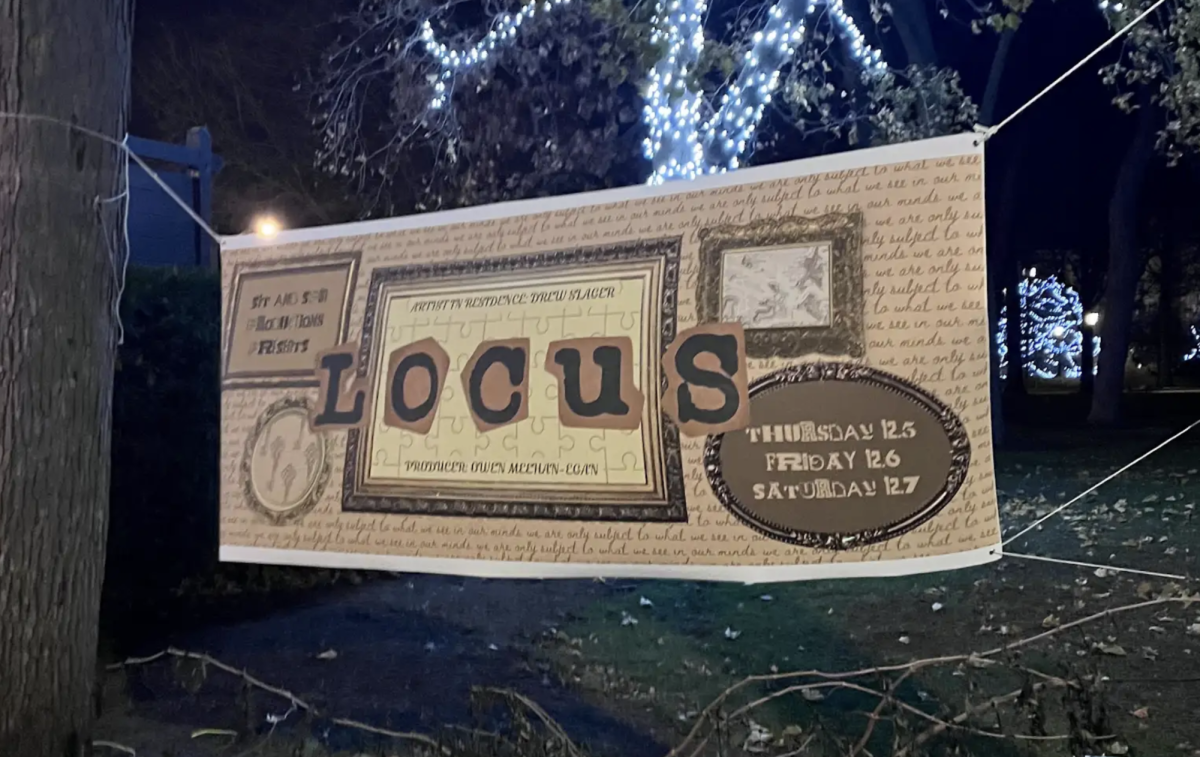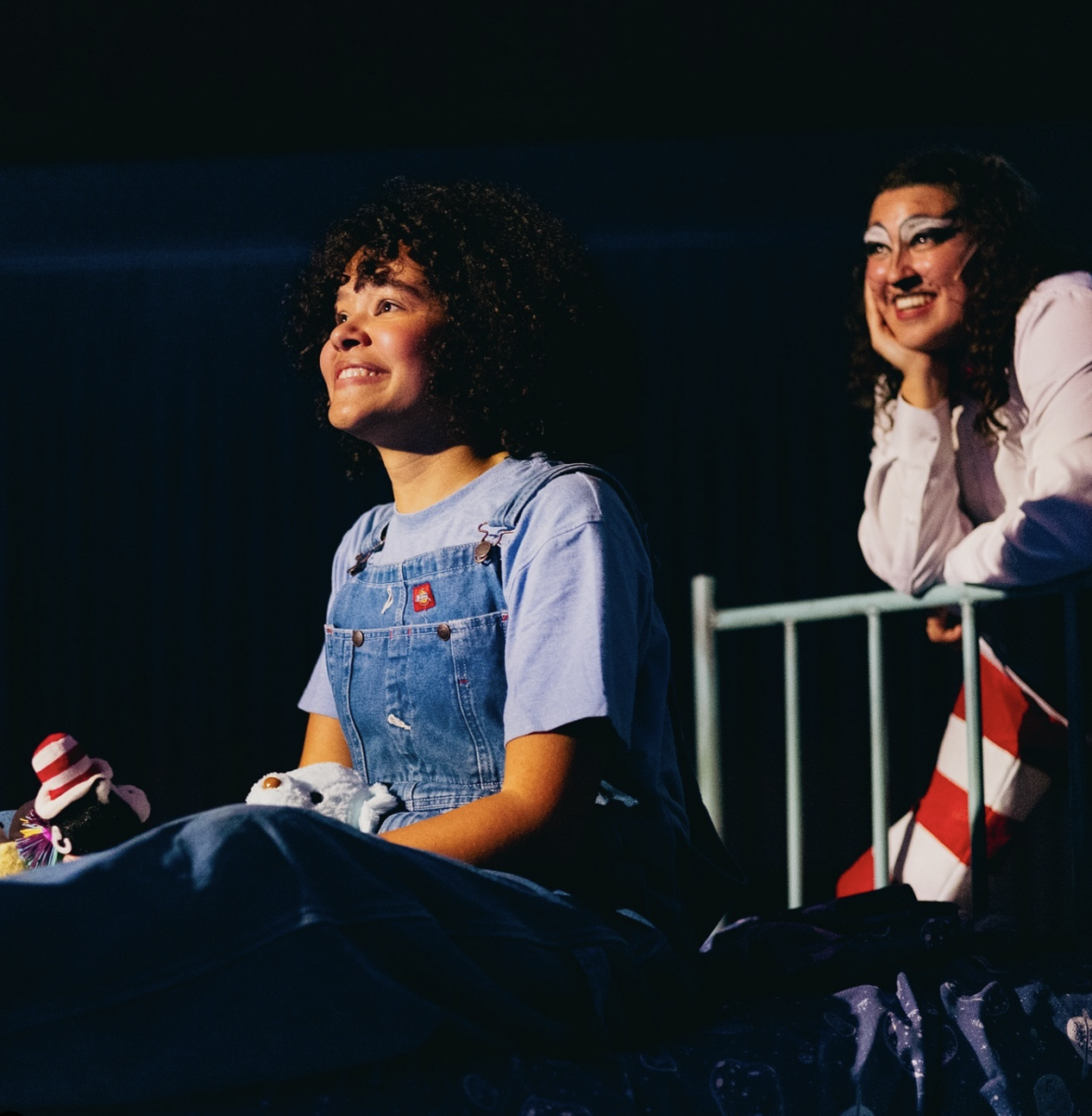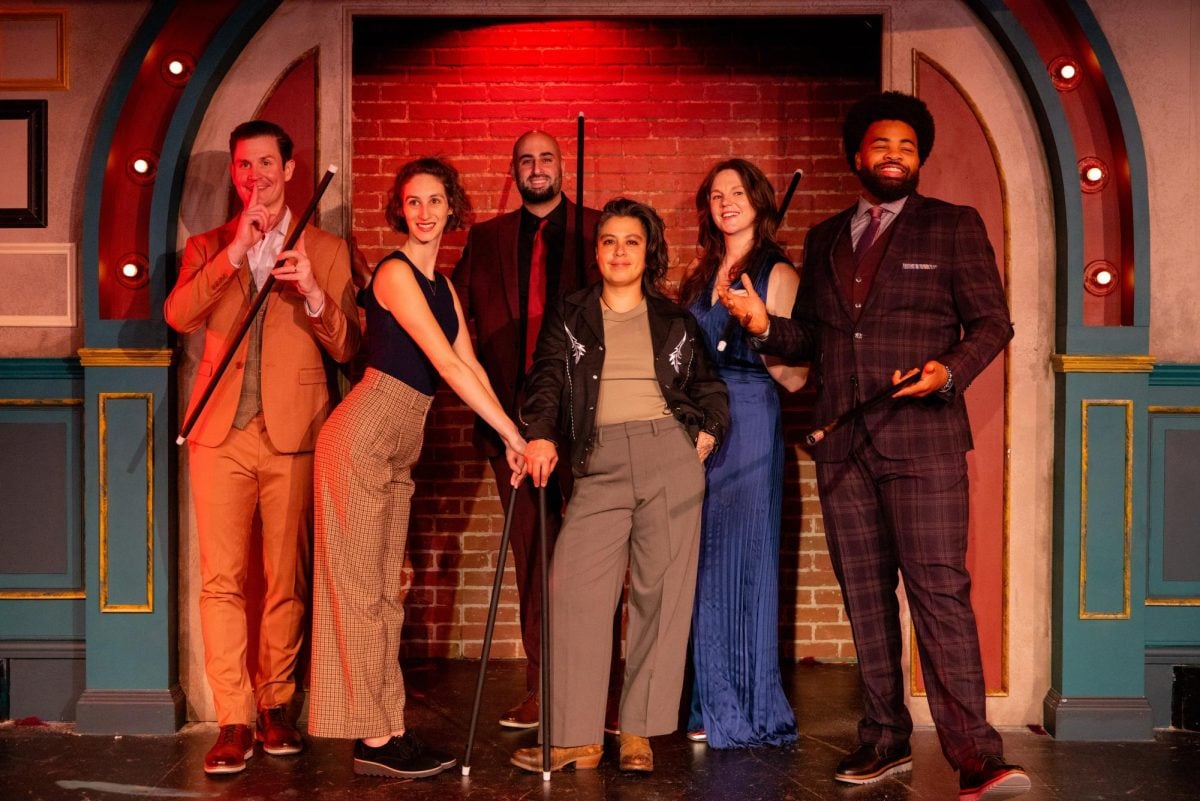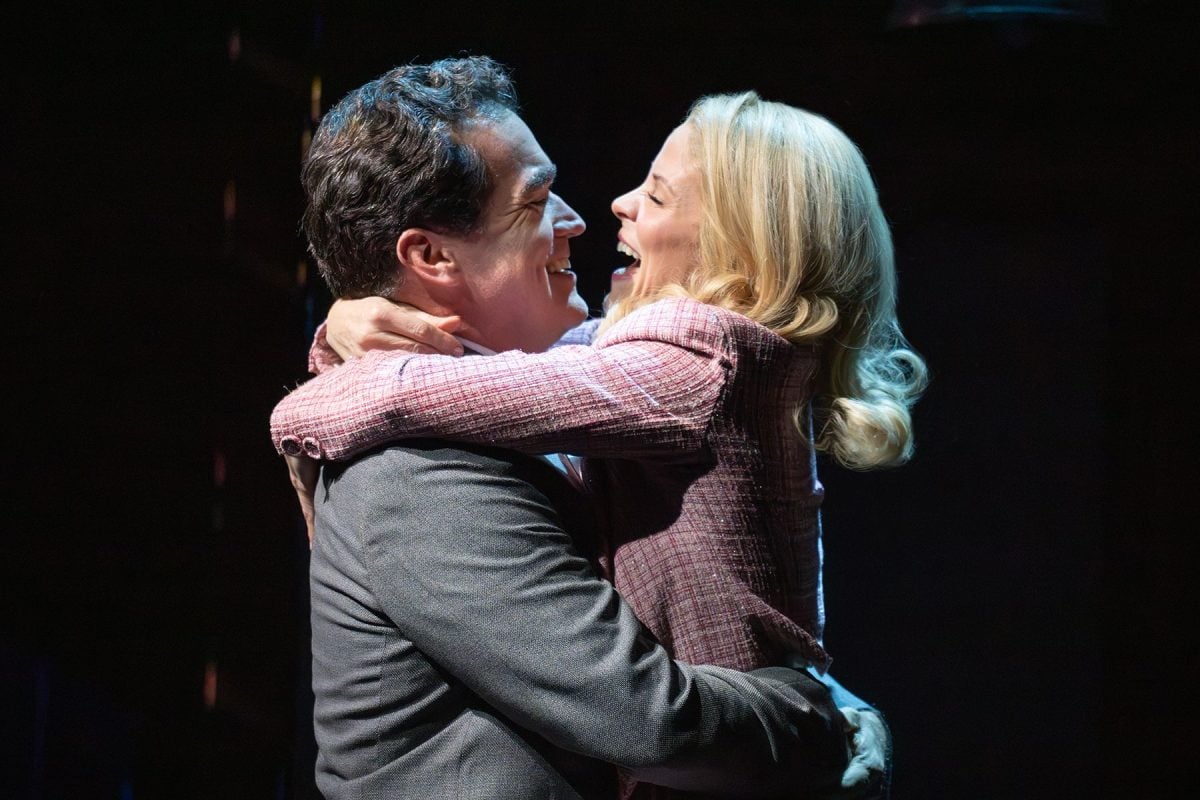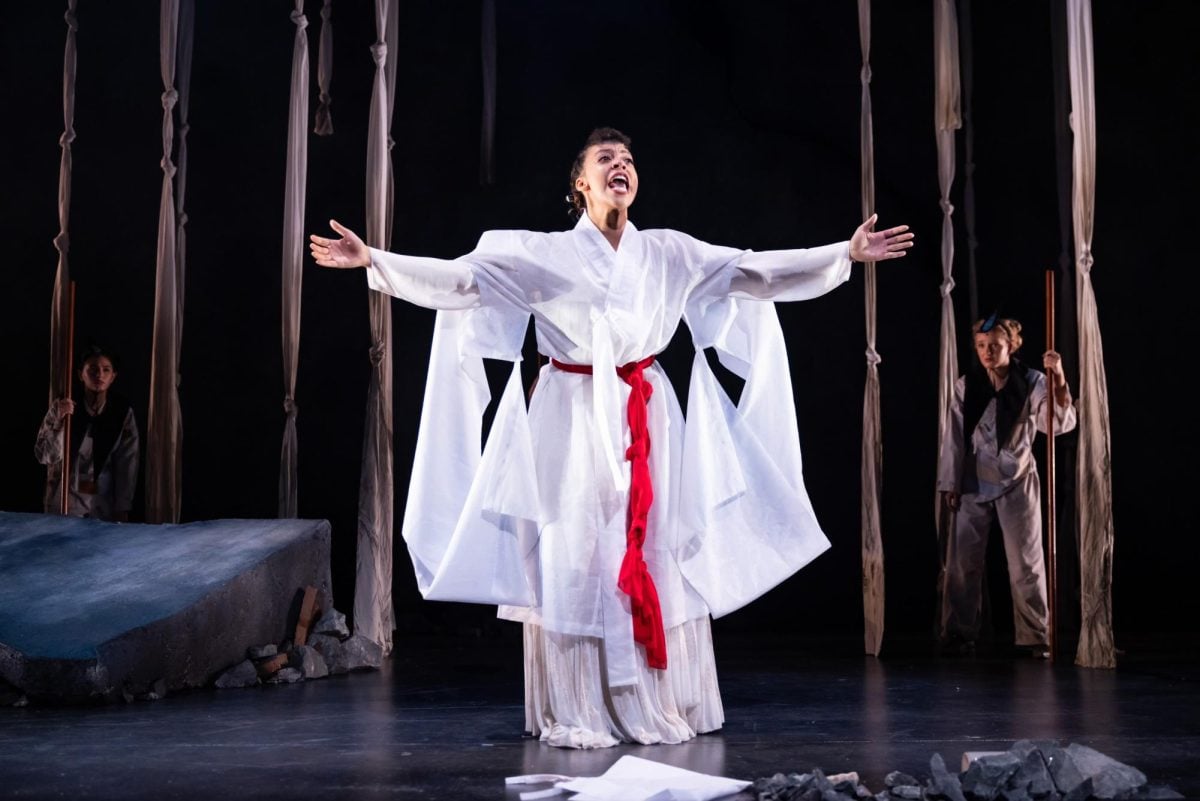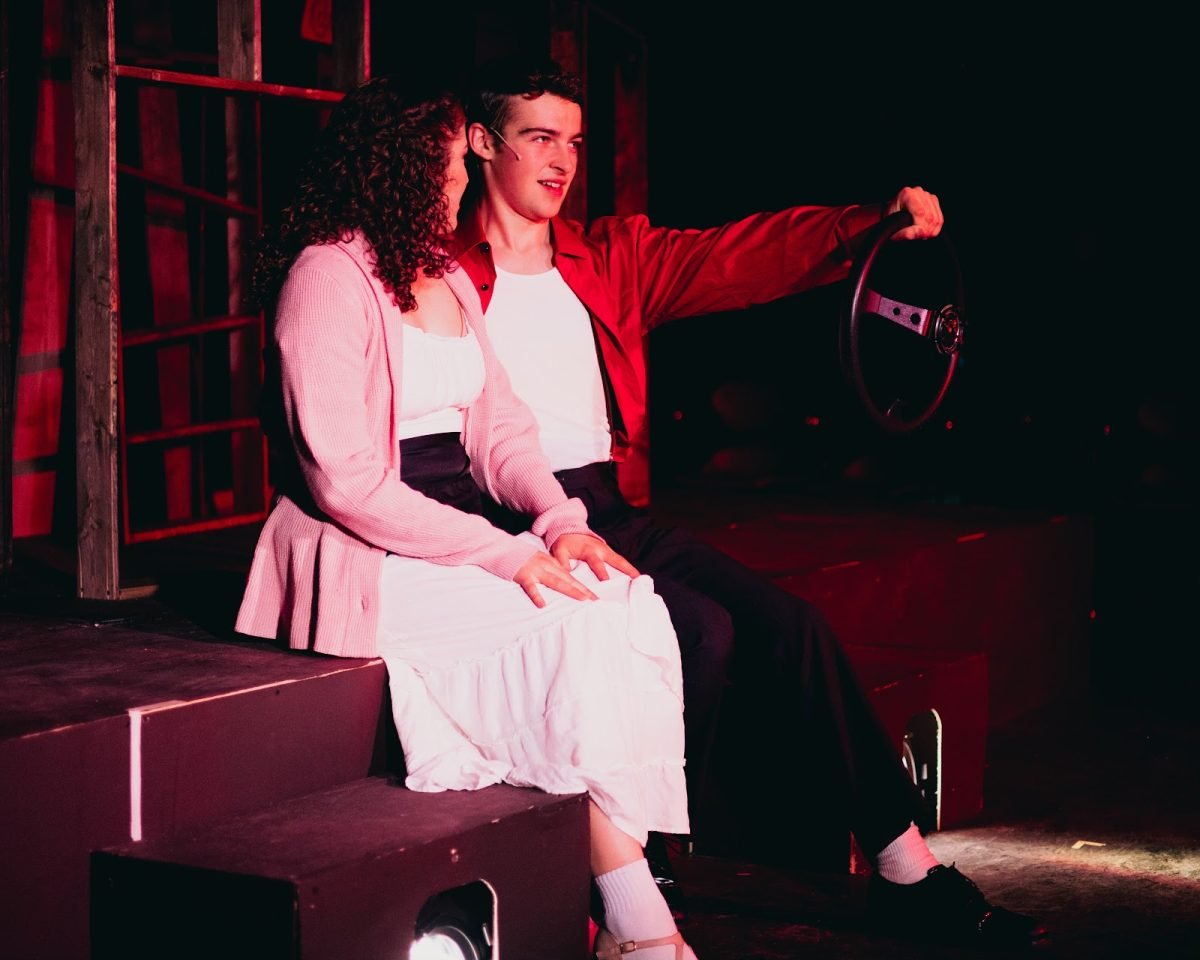Content warning: This article contains discussion of rape, sexual assault and violence.
With boxing gloves hanging and Greek Life-aesthetic posters plastering the walls, Shanley Pavilion has transformed into a college gym. Spectrum Theatre Company
will grapple with what it means to heal amid rape culture in its production of “How To Defend Yourself” during four shows Friday and Saturday.
In the play, two sorority sisters lead a self-defense workshop for five other college students. The class allows the students to find power and connection in light of another sister being hospitalized after two fraternity brothers sexually assaulted and attacked her.
“It’s taking the conversation of rape culture and actually placing the blame where it belongs on the misogynistic systems in place, as opposed to blaming other women for their own trauma,” said Communication junior and Director Julie Monteleone.
Monteleone said she’s wanted to work on a production that talks about an unfortunately relatable experience in an empowering way for years. They don’t want to retraumatize the audience but rather have heart behind emotionally raw depictions.
Communication sophomore Zoe Davis, the producer, said this play dismantles talking about the taboo, including graphic discussion of sex, sexual assault and violence.
Davis wants the community to understand the topic further by “seeing art and feeling what the characters feel.” With actors right in front of them in the intimate Shanley setting, it’s “real and tangible,” they said.
With a contemporary setting and college-aged characters, the script might feel familiar for many in the audience, Monteleone said. She said the play intends to represent diverse experiences of sexual assault and recovery.
Rape culture is pervasive, entrenched into culture and impacting people daily, according to Communication senior Lucia Padilla Katz who plays workshop co-host Kara. She said she hopes women-identifying people can find healing and male-identifying people can find understanding from the play.
“It’s not an isolated thing. It’s not just what happens at a frat party,” she said. “From the time we’re children to now, these gender dynamics are at play and put women in compromising positions.”
But the show doesn’t present itself as a solution according to Communication freshman Mia El-Yafi, who plays college freshman Mojdeh. Rather, she said, the show’s strength stems from recognizing societal issues.
“There’s no bad guy, and there’s no good guy. All of the characters are so complex and so morally not linear,” El-Yafi said. “I think that’s what makes the play so powerful.”
The set changes as characters and their relationships evolve to reflect that complexity, Communication sophomore and Scenic Designer Avelina Sanchez said.
Davis said the team worked with Northwestern’s Sexual Health and Assault Peer Educators to learn how best to provide resources to the audience. The program includes more than 20 resource listings, such as the Northwestern Women’s Center and the Illinois Coalition Against Sexual Assault.
This weekend, Spectrum will display its community art piece. The project will feature collages of images people said resonated with them around the topic, along with words and poetry relating to people’s experiences.
The team called for submissions about how people defend or empower themselves — emotionally, mentally or physically. The project aims to honor people’s strength and voices, according to Monteleone.
“If we can maybe just acknowledge how painful this is and how upsetting it is, maybe we can find healing through that,” Monteleone said.
Spectrum also hosted a self-defense class Nov. 11, opening up 25 slots for participants to learn personal safety skills from a trainer and build confidence. But these classes alone can’t help a systemic issue, Davis said, so the class conversed about how to keep voices active about the issues facing assigned female at birth individuals.
People who are socialized as women and femme people, Monteleone said, are taught to stifle their anger and play nice. This play should celebrate that anger, empowering people and inciting them to action.
“I hope that this play makes people angry,” they said. “I’d love for audiences to leave really pissed off about the state of the world, the state of what it’s like to be a woman in the world and actually use that anger to create change.”
Email: [email protected]
Twitter: @karapeeler
Related Stories:
— Opening the curtains on how to join Northwestern theatre groups
— Friendship bracelets and murder: ‘Blood Pact’ weaves anger, pain of girlhood
— ‘Gruesome Playground Injuries’ is a raw reminder of the messiness of life
